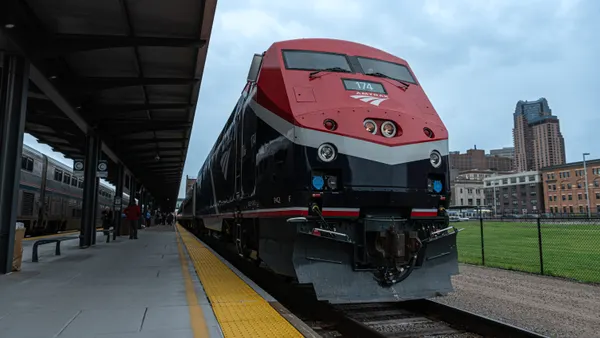Dive Brief:
- Paris, France launched a study today to determine the feasibility of making its public transportation system free for all users.
- Mayor Anne Hidalgo first announced the three-part study in March, with the main objective of seeing if free public transportation will reduce emissions and help public health.
- The study comes months after the city started to offer subsidies to those who give up their cars and buy bikes. Hidalgo has also previously called on the city to ban diesel cars by 2024 and gas-powered cars by 2030.
Dive Insight:
The major question for any city that explores offering any kind of free public transportation involves cost and how to offset the loss of an existing revenue stream. According to one estimate, free public transportation could cost Paris an extra 6 million euros ($7 million) per year. The city’s budget was 7.6 billion euros ($8.9 billion) in 2013. Free ride areas have been tested already in the U.S. in Portland, OR and Seattle. Both attempts were curtailed due to budget deficits that needed to be filled with fare hikes and service cuts.
So far, suggestions for how to pay for the free public transportation include a new tax, an overhaul of subsidies by businesses to their employees, and a congestion charge or urban toll for those who drive. Similar experimentation is being tested in five cities in western Germany, which require a government subsidy for public transportation companies to offer free service. Whether public transit is made free for certain groups — students or those in certain income brackets, for example — also needs further thought through.
Free public transportation is a bold proposal, even with the positive environmental impacts it offers. Hidalgo’s administration has been embarrassed in recent times by Velib, the city’s bikeshare program that has been beset by problems after a promise to overhaul it and introduce more electric bikes. Many questions swirl around this proposal — this study potentially will shed some light.












